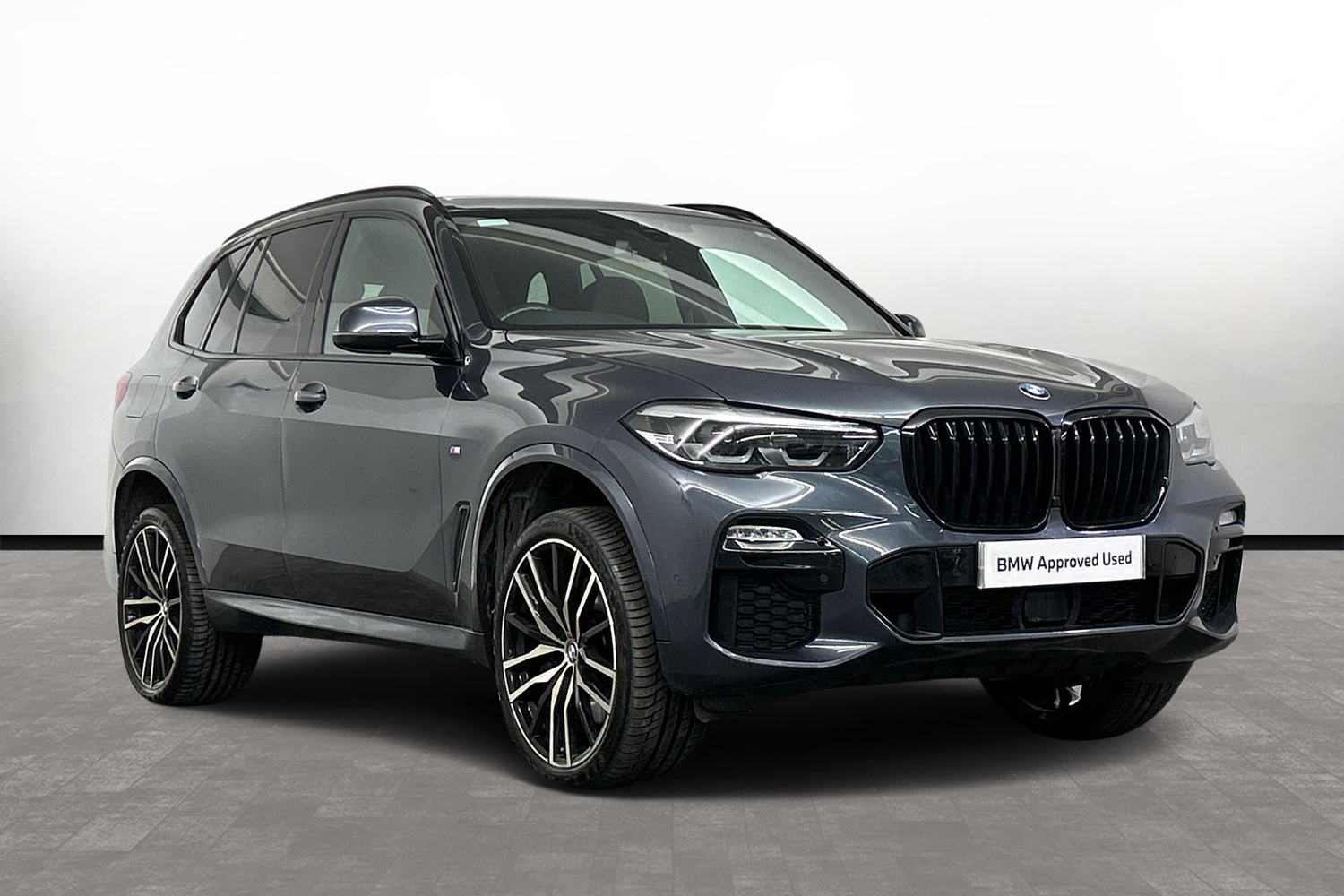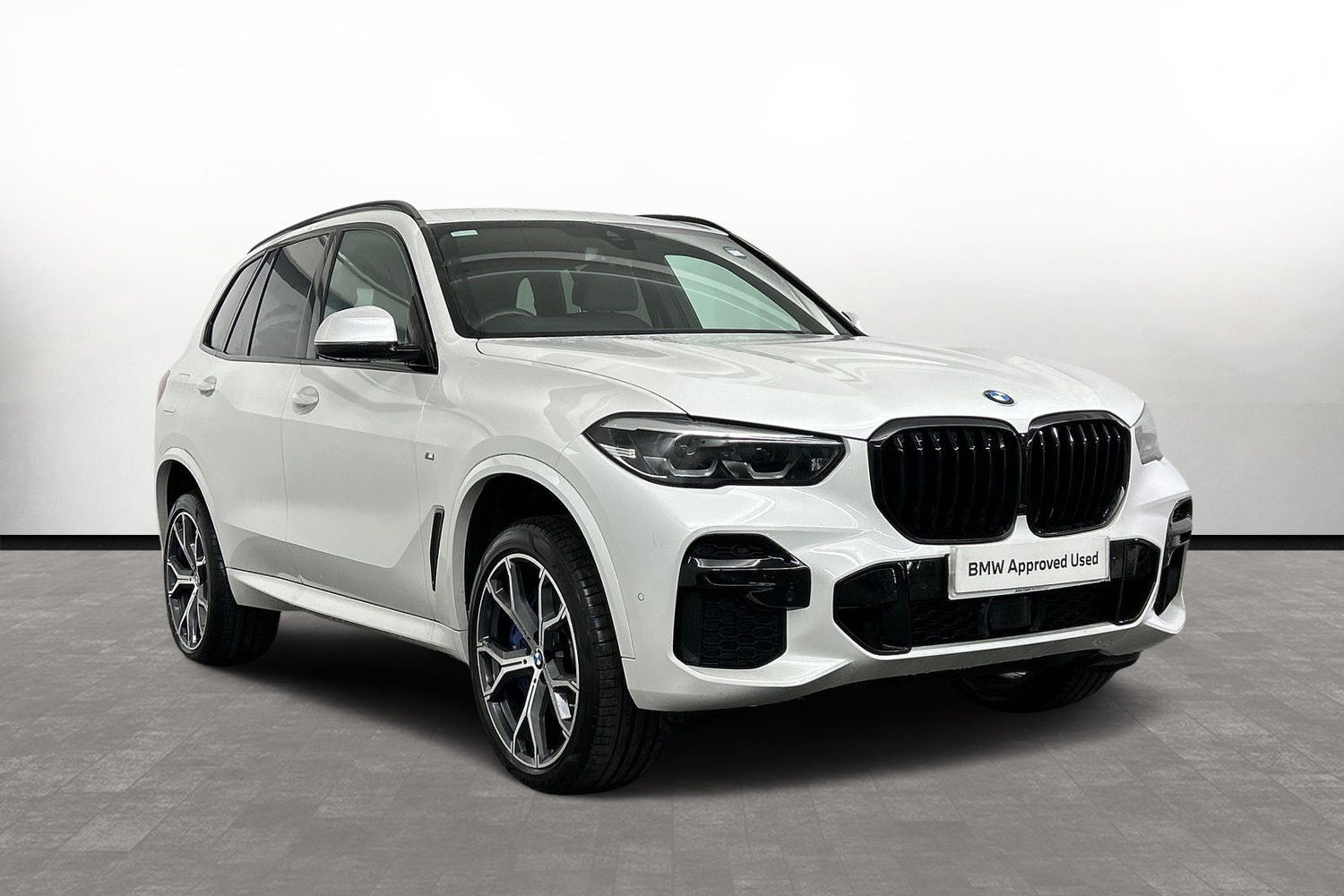Used BMW X5 for sale: everything you need to know
It’s easy to see why the BMW X5 is so appealing. It was the sporty German brand’s first SUV, and has constantly evolved over more than two decades and several generations on sale.
The latest BMW X5 is a large and striking machine – you’d swear at first glance it was the range-topping model in BMW’s SUV line-up, given the on-road presence it commands. BMW has expanded the engine range too, with fuel-saving plug-in hybrids for the eco-conscious and high-powered BMW M-branded models for those who prefer performance.
There are plenty of SUV rivals to the BMW X5 including the Mercedes-Benz GLE, the Audi Q7 and the Volvo XC90.
The BMW X5 range has never been more comprehensive, or indeed more alluring. Take a look at a BMW X5 for sale on heycar to discover just what’s on offer.
Should you buy a BMW X5?
If you’re seeking a large premium SUV that will deliver plenty of feel-good excitement from behind the wheel, the BMW X5 is a great choice. Like nearly all BMWs, it is extremely satisfying to drive, with fluid and precise handling, plentiful power and a sense of satisfaction from all the major controls that you simply don’t get in many other alternatives.
As the biggest BMW X5 ever, it’s not lacking in on-road presence. The giant kidney grilles are in line with the current BMW trend, and there’s no doubting it’s a head-turner – particularly if you take advantage of the many customisation possibilities available via the configurator.
Regular six-cylinder petrol and diesel engines offer good value and ample performance, while a plug-in hybrid petrol gives a healthy pure electric driving range to cut those fuel bills. BMW even offers two performance-oriented grades: the BMW X5 M50i and BMW X5 M Competition. We’d be delighted with the former, and as for the latter’s wailing 625PS V8, well…
The BMW X5 has a seven-seat option alongside the regular five-seat version, although this isn’t available on the plug-in hybrid 45e. That’s because the plug-in batteries are under the boot floor, taking the place of the folded-flat third-row seats.
BMW also offers a larger premium SUV, the X7 (which also has seven seats), but some find its styling more controversial, and its overall dimensions just too large. For most, the BMW X5 is a perfect all-rounder, with plenty of space, potent performance and all the onboard luxury you could wish for. We think the BMW X5 is a really good car to buy – and you don’t need to spend an eye-watering amount to buy or lease one, as we’ll show.
The BMW X5 has been a go-to premium SUV for those who don’t want to be short-changed in terms of driving dynamics ever since its launch. This latest version brings a whole new level of onboard luxury to the table, plus striking styling that offers plenty of on-road status.
It’s offered in an accessible line-up of xLine and M Sport trim grades, with two BMW M-influenced range-toppers that deliver more focus and performance than ever. The latest plug-in hybrid is also seriously capable, if you want something more clean and contemporary than the regular petrol and diesel engines.
It’s such a good car to drive, it’s hard to see how anyone would be disappointed after testing a new BMW X5. For this reason, if it’s on your shortlist, it’s almost certainly going to be a premium SUV you might seriously consider buying or leasing.
A BMW X5 not for you? We've got 1000s of used cars for sale to suit all budgets and needs.
What’s the best used BMW X5 model to buy?
Unless you're a company car driver, then we can't see any reason not to go for the entry-level xDrive 30d. It has a smooth, powerful six-cylinder engine, supple air suspension, and is the most affordable and efficient diesel BMW X5.
With the smallest wheels and non run-flat tyres, it's also the most comfortable and hushed version of this car when cruising long motorway distances - qualities that we think are essential on a big, luxurious family SUV. If the 30d model isn't quite fast enough for your liking, then the punchier still 40d is excellent - while still remaining fairly economical.
The same can't be said of the petrol models, which while impressive to drive will hurt your wallet at the pumps. Even the lowest powered 40i model has a 333PS turbocharged straight-six, and that's plenty - but you'll be doing well to see 30mpg out of it. The M50i on the other hand? It's a twin-turbo V8 with serious pace, but that'll be more like 21mpg. To be honest, though, it makes the 'full-fat' X5 M look rather ludicrous.
If you plan to buy a petrol, then frankly you'd be mad not to go for the plug-in hybrid xDrive 45e. It's only a little more expensive to buy than the xDrive 40i, but will be much cheaper to run and tax, and its pure-electric driving capabilities make it a wonderfully stealthy and soothing car for navigating stop-start city traffic.
The xLine trim has everything you need specification wise, so again unless you're desperate to pump up the already brash styling we wouldn't bother with the pricier M Sport version (although plenty of buyers will). You can use the cash you save to plump up for a few extras, like the Technology Pack or the third row of seating. It's worth avoiding the very largest 22in wheels if you can, as the BMW X5 loses some of its imperious comfort with them fitted.
Used BMW X5 fuel economy and performance
- BMW X5 40i: This 3.0-litre six-cylinder turbo petrol engine produces 333PS, which is good for 0-62mph in just 5.7 seconds. That’s pretty impressive, particularly as it’s still able to return 31.7mpg. Thank the standard mild hybrid engine tech for that. Pre-mild-hybrid models from 2018-2020 had slightly more power at 340PS, which meant 0-62mph in 5.5 seconds and claimed fuel economy of 33.2mpg.
- BMW X5 45e: The plug-in hybrid X5 45e combines a six-cylinder petrol engine with a potent electric motor (and 24kWh battery), for a total power output of 394PS. It accelerates from 0-62mph in 5.6 seconds, yet also offers a pure electric driving range of up to 55 miles. Low CO2 emissions deliver appealing company car tax bills, too.
- BMW X5 30d: A traditional 3.0-litre six-cylinder turbodiesel, the X5 3.0d has 286PS for a perfectly ample 0-62mph time of 6.1 seconds. It is notably more fuel-efficient than the petrol X5 40i, with combined fuel economy of 41.5mpg.
- BMW X5 40d: A more powerful 340PS version of the 3.0-litre six-cylinder turbodiesel, the X5 40d can accelerate from 0-62mph in 5.5 seconds, and also officially averages 40.5mpg.
- BMW X5 M50i: Using a 4.4-litre V8 turbo engine, the M50i produces 530PS for a vibrant 0-62mph time of just 4.3 seconds. For such a large machine, that’s little short of amazing. Best not to mention fuel economy, though: it averages just 24.4mpg.
- BMW X5 M50d: The performance diesel model uses a six-cylinder, 3.0-litre engine with 400PS and can hit 62mpgh in 5.2 seconds while averaging 41.5mpg.
- BMW X5 M Competition: A highly specialised V8 range-topper, the X5 M Competition has the 4.4-litre engine tuned up to 625PS, for 0-62mph in a barely believable 3.8 seconds. It’s a real powerhouse, and a beast at the pumps as well. Expect average fuel economy of just 21mpg.
What used BMW X5 trim levels are available?
The BMW X5 offers a pleasingly straightforward range of variants, but one that’s surprisingly comprehensive at the same time. The core xLine models offer a plentiful standard spec, while the desirable M Sport grade allows buyers to combine fuel-efficient engines with racy exterior and interior styling.
There are also two performance range-toppers: the M50i and full-fat BMW X5 M Competition. The latter has more power than many variants of the Porsche 911 sports car…
- The BMW X5 xLine is the more rugged-looking mainstream BMW X5 variant. It has 19-inch alloys, aluminium roof rails and plush Vernasca leather, and a choice of 40i petrol, 30d and 40d diesel or 45e plug-in hybrid engines.
- The BMW X5 M Sport is the sportier alternative variant to the xLine. It has 20-inch alloys, gloss black detailing, body-colour wheelarch extensions and sports seats; the engine choice is the same as with the xLine.
- The BMW X5 M50i is a high-performance step up from the M Sport, with a single high-power engine option plus 22-inch alloys, silver door mirror caps, M Adaptive Suspension and a potent Harman Kardon sound system.
- The BMW X5 M Competition is the super-SUV range-topper, with a V8 engine putting out no less than 625PS. The bespoke M styling features you get on other M-cars make an appearance, both outside and in.
Used BMW X5 dimensions and boot size
The BMW X5’s exterior dimensions are:
- Length: 4938mm
- Width: 2015mm
- Height: 1748mm
- Ground clearance: 215mm
The BMW X5’s boot size is:
- 650 litres
- 1870 litres with rear seats folded
Used BMW X5 road tax
Keeping your BMW X5 on the road will be an expensive business. Much like other luxury SUVs, no version of the X5 costs less than £40,000 when new, so it is liable to pay the higher 'premium' rate of VED until the car is six years old. That means it'll cost you £570 a year, before reverting to a flat-rate fee, currently at £180.
You get a measly £10 discount if you buy the 45e hybrid, it counts as an alternatively fuelled vehicle, but since none of the diesels are RDE2 emissions compliant, the first-year rates will be steep. The M50i will cost a whopping £2,605.
If you're a company car driver then you'll be able to claw some of that money back by buying the 45e hybrid. Its long electric-only range and low CO2 emissions mean it attracts a BIK rate of just 8%. For comparison, all the diesel versions are in the top 37% BIK bracket.
How much is to insure a BMW X5?
The BMW X5 is a high-end premium SUV, with insurance ratings that reflect this. Despite this, the base X5 30d diesel isn’t too pricey to insure, with a group 43 rating. Choosing the X5 40d pushes this up to group 44, and the X5 40i is in group 46. Other versions are likely to be rather more expensive: the X5 45e is group 48 and the M-developed X5 M50i and M Competition V8s both fall into the most expensive group 50 band.
Read our full BMW X5 review


